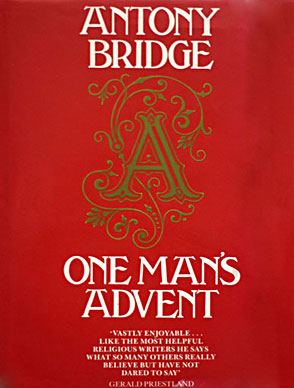
BBC World Service Talk
B.B.C. World Service December, 1985
Talk 5.
In this series of talks, I have said something about how I journeyed from atheism to Christian belief, but I’ve said nothing so far about the various objections to belief, which worried me along the way. I haven’t time to speak of all of them, but I must briefly look at the two which seem to me to be the worst and most difficult to answer. The first is obvious enough. It is this ‘How can you reconcile talk of a loving God with the enormous amount of suffering in the world?’ It’s not a new problem; Job wrestled with it in his day, and it hasn’t disappeared since then. Indeed, a righteously indignant world accuses God of having created a world full of cancer, earthquakes, famines, wars and general miseries: a world in which, if things are left to God, life for most men, as Thomas Hobbes remarked, is ‘solitary, poor, nasty, brutish and short’; so, God is put in the dock and accused of talking nonsense, when he claims to be loving. The idea of a loving God is so plainly irreconcilable with the fact of a suffering world that one or the other has to go; and since we know that the world exists and suffers, we conclude that God does not do so. He is dead, as Nietzsche informed us; or never existed at all as I believed for years. This is a conclusion, which seems inescapable, even if we admit that most human suffering is self-inflicted by human beings on each other; but the problem becomes more complicated when you delve a little deeper and are forced to admit that, since to be human is to be free to make choices, however limited that freedom may be by various things, then the freedom to love people or to hate them and make them suffer is part of our heritage as human beings. This leaves out suffering caused by what the Insurance Companies call ‘Acts of God’, but once the word ’love’ is mentioned in conjunction with suffering, yet another aspect of the problem forces itself on our attention; for there is a sense in which love and suffering are Siamese twins, the one being unable to exist without the other. A disaster on the other side of the world may not bother me very much, but when my child, mother, lover or lifelong friend tells me that he or she has a month to live, I suffer because I love. Only a world without love would be a world without suffering; so it is at least possible to argue that only a loving God could have created a suffering world, and indeed that a loving God could not have done otherwise.
I must be even more brief, I’m afraid, when looking at the other great objections to Christian belief, which is – of course – the existence of a worldly, legalistic, bickering and recurrently obscurantist Church, whose sins of commission and omission have been so numerous down the ages that to make a list of them would take a week: a Church which is enough very often to put anyone off the idea of religion for life: indeed, a Church which, while claiming to be a divine institution filled and led by the spirit of God and with no abiding citizenship in this world, has in actual fact taken on the colour of whatever worldly society it has happened to find itself in at the time – snobby in the 18th century, and today bureaucratic, hag-ridden by committees, and addicted to sing boringly vulgar hymns set to second-rate pop-music. Yet, while all this is true, it is not the whole truth, for the Church is not meant to be filled with a bunch of self-confident success types; it is composed of people who know that without God’s help they’re no good to man or beast, and it is surprising, when you get to know them from inside, as I do, how different they look. They may look dull and uninspiring to the outward eye, but sometimes a God’s-eye-view of them has come my way, and has shown them to be what they really are: a bunch of ordinary human beings, which, relying on God, is full of many mini-Mother Teresas and pocket Wesleys and Wilberforces in tired and dilapidated cassocks doing their best to love God and their fellow men; and at such time, I wouldn’t swap them for any other bunch of people in God’s world.